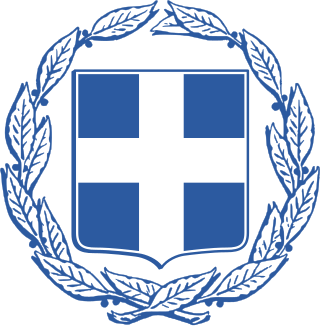Greece , officially the Hellenic Republic, is a country in south-east Europe.
Greece , officially the Hellenic Republic, is a country in south-east Europe.

Greece, officially the Hellenic Republic, is a country in Southeast Europe. Located on the southern tip of the Balkan peninsula, Greece shares land borders with Albania to the northwest, North Macedonia and Bulgaria to the north, and Turkey to the east. The Aegean Sea lies to the east of the mainland, the Ionian Sea to the west, and the Sea of Crete and the Mediterranean Sea to the south. Greece has the longest coastline on the Mediterranean Basin, featuring thousands of islands. The country comprises nine traditional geographic regions, and has a population of over 10.4 million. Athens is the nation's capital and largest city, followed by Thessaloniki and Patras.

The Greeks or Hellenes are an ethnic group and nation native to Greece, Cyprus, southern Albania, Anatolia, parts of Italy and Egypt, and to a lesser extent, other countries surrounding the Eastern Mediterranean and Black Sea. They also form a significant diaspora, with many Greek communities established around the world.

Athens is one of the oldest named cities in the world, having been continuously inhabited for perhaps 5,000 years. Situated in southern Europe, Athens became the leading city of ancient Greece in the first millennium BC, and its cultural achievements during the 5th century BC laid the foundations of Western civilization.

The history of Greece encompasses the history of the territory of the modern nation-state of Greece as well as that of the Greek people and the areas they inhabited and ruled historically. The scope of Greek habitation and rule has varied throughout the ages and as a result, the history of Greece is similarly elastic in what it includes.

Agrinio is the largest city of the Aetolia-Acarnania regional unit of Greece and its largest municipality, with 89,691 inhabitants (2021) as well as the second largest city in Western Greece after Patras. It is the economic center of Aetolia-Acarnania, although its capital is the town of Mesolonghi. The settlement dates back to ancient times. Ancient Agrinion was 3 kilometres northeast of the present city; some walls and foundations of which have been excavated. In medieval times and until 1836, the city was known as Vrachori (Βραχώρι).

The coat of arms of Greece or national seal of Greece comprises a white Greek cross on a blue escutcheon, surrounded by two laurel branches. It has been in use in its current form since 1975. Prior to the adoption of the current coat of arms, Greece used a number of different designs, some of which were not heraldic; the first heraldic design was introduced in 1832 and its main element, the blue shield with the white cross, has been the base for all other national coats of arms since then. The design is a heraldic representation of the Greek national flag adopted in 1822, which featured a white cross on a blue field.

The history of the Hellenic Republic constitutes three republican periods in the modern history of Greece: from 1822 until 1832; from 1924 until 1935; and from 1974 through to the present. See also the constitutional history of Greece.
Hellenic is a synonym for Greek. It means either:

The Third Hellenic Republic is the period in modern Greek history that stretches from 1974, with the fall of the Greek military junta and the final confirmation of the abolishment of the Greek monarchy, to the present day.
The name of Greece differs in Greek compared with the names used for the country in other languages and cultures, just like the names of the Greeks. The ancient and modern name of the country is Hellas or Hellada (Greek: Ελλάς, Ελλάδα; in polytonic: Ἑλλάς, Ἑλλάδα), and its official name is the Hellenic Republic, Helliniki Dimokratia. In English, however, the country is usually called Greece, which comes from the Latin Graecia.
Hellenic State, also translated as Greek State, was used as the official name of the modern Greek state three times in its history:

Monarchy of Greece or Greek monarchy is the constitutional form of government by which a hereditary sovereign (Basileus) reigns as the head of state of Greece. Monarchy in Greece lasted from 1832 to 1924 and from 1935 to 1973.

The following outline is provided as an overview of and topical guide to Athens: